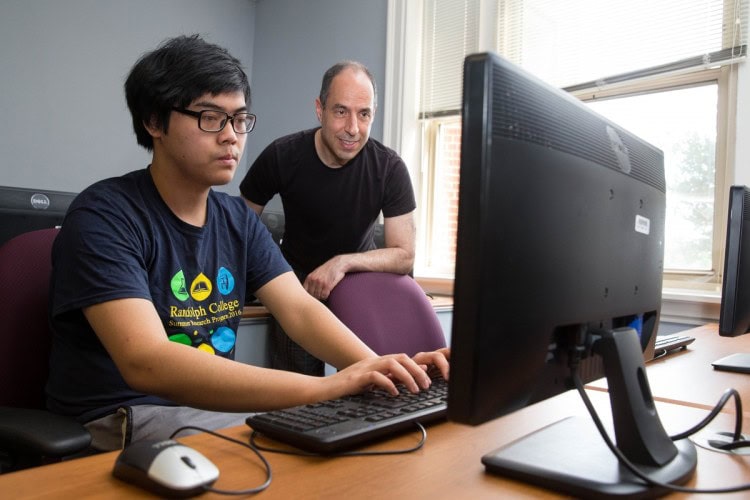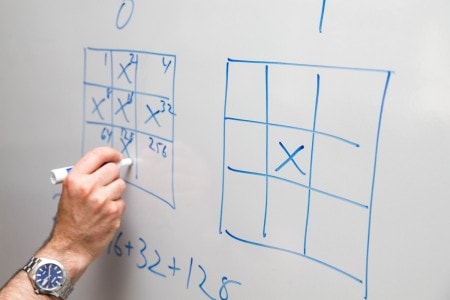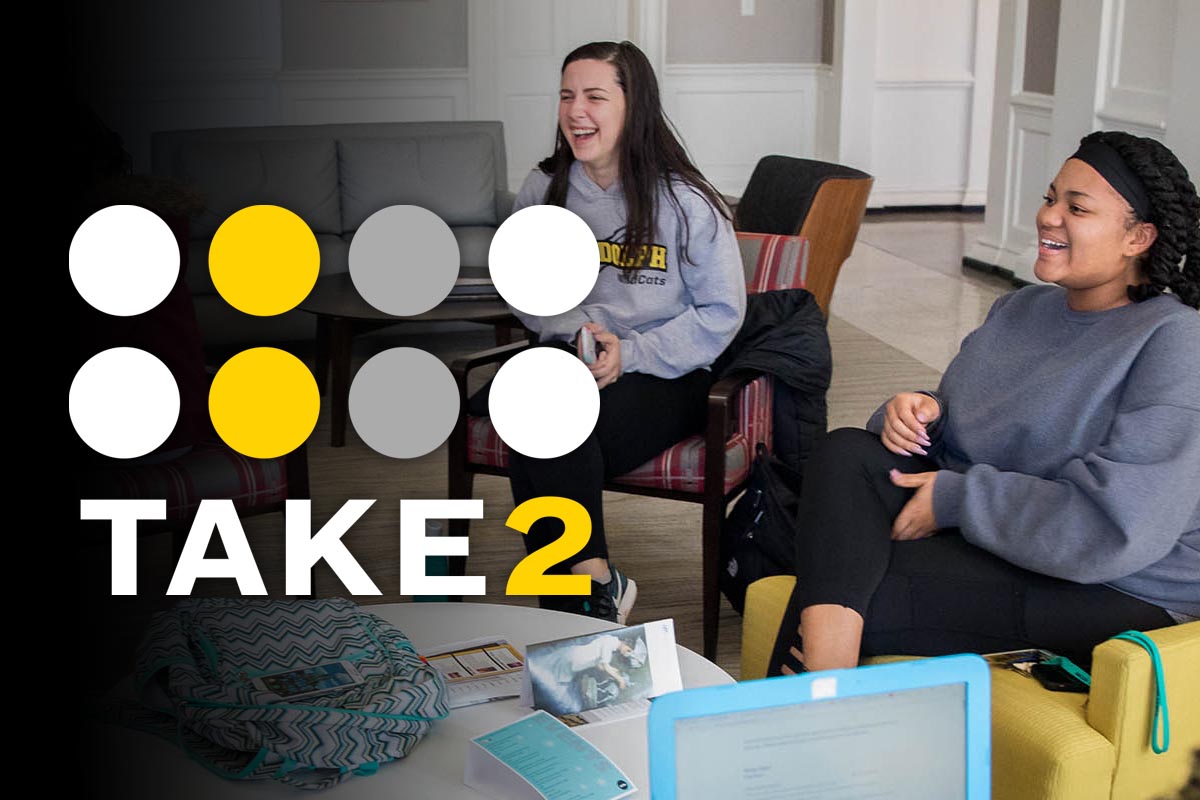Making a game out of Summer Research

Anh Vo ’18 and mathematics professor Marc Ordower play John Conway’s Game of Life.
Anh Vo ’18 has spent the summer playing and developing the Game of Life™ with one of his favorite professors. But this is no Hasbro board game with tiny, plastic cars or fake money—this game is reserved for those with the most advanced skills in mathematics.
For Summer Research, Vo is working with mathematics professor Marc Ordower to create a competitive, 3-D version of John Conway’s Game of Life. A famed mathematician, Conway introduced the Game of Life in 1970. The original simulation modeled the growth of cells in two dimensions on a rectangular grid, but players could only control the initial configuration of the cells.
“It falls into an interesting niche between a traditional computer game and a traditional board game,” Ordower said. “It happens at the speed of a computer game and there are five cell generations every second, but it also has some features of a board game too.”

Mathematics professor Marc Ordower demonstrates the strategy of the game.
In a previous Summer Research project, Randolph students adapted the simulation into a two-player computer game in which each player controlled red or blue cells with the objective of dominating the board. This summer, Vo is expanding on their work to create the new 3-D experience as well as develop a value-based search algorithm.
“Anh’s method is going to help us search and hopefully find patterns by which we can activate cells all the way across the board, as we couldn’t in the two-dimensional game we previously developed,” Ordower said.
He said the game is similar to chess in that a player can read and understand the rules, but can only get better with experience. In the case of Conway’s Game of Life, understanding the mathematical equations behind each move is key.
“The play of the game is sort of inherent in its design,” Ordower said. “In this way, it’s more like chess. You have a goal and you have the rules, and it’s up to you and what you can learn from other people to teach you how to play.”
A mathematics and engineering physics major, Vo already sees the benefits of his work.
“I really love programming, and it’s what I want to do after I graduate, so this project is really special to me,” he said.
Tags: Anh Vo, Marc Ordower, mathematics, summer research, Summer Research 2016
